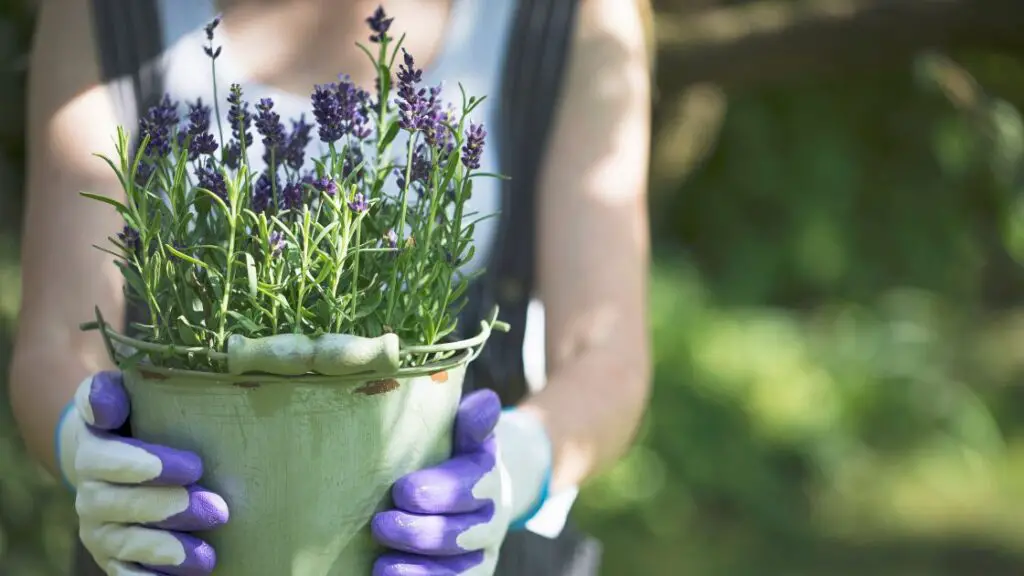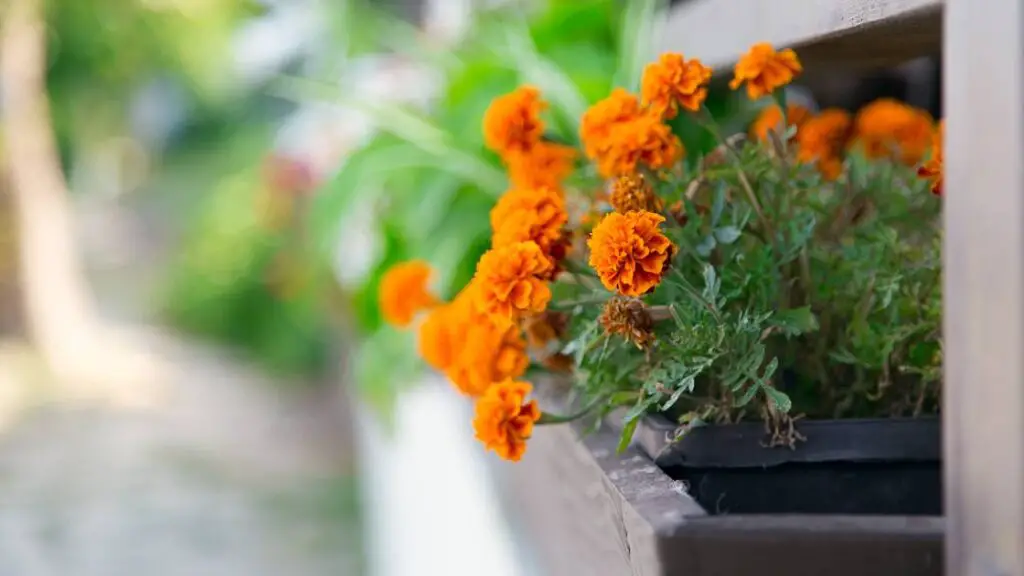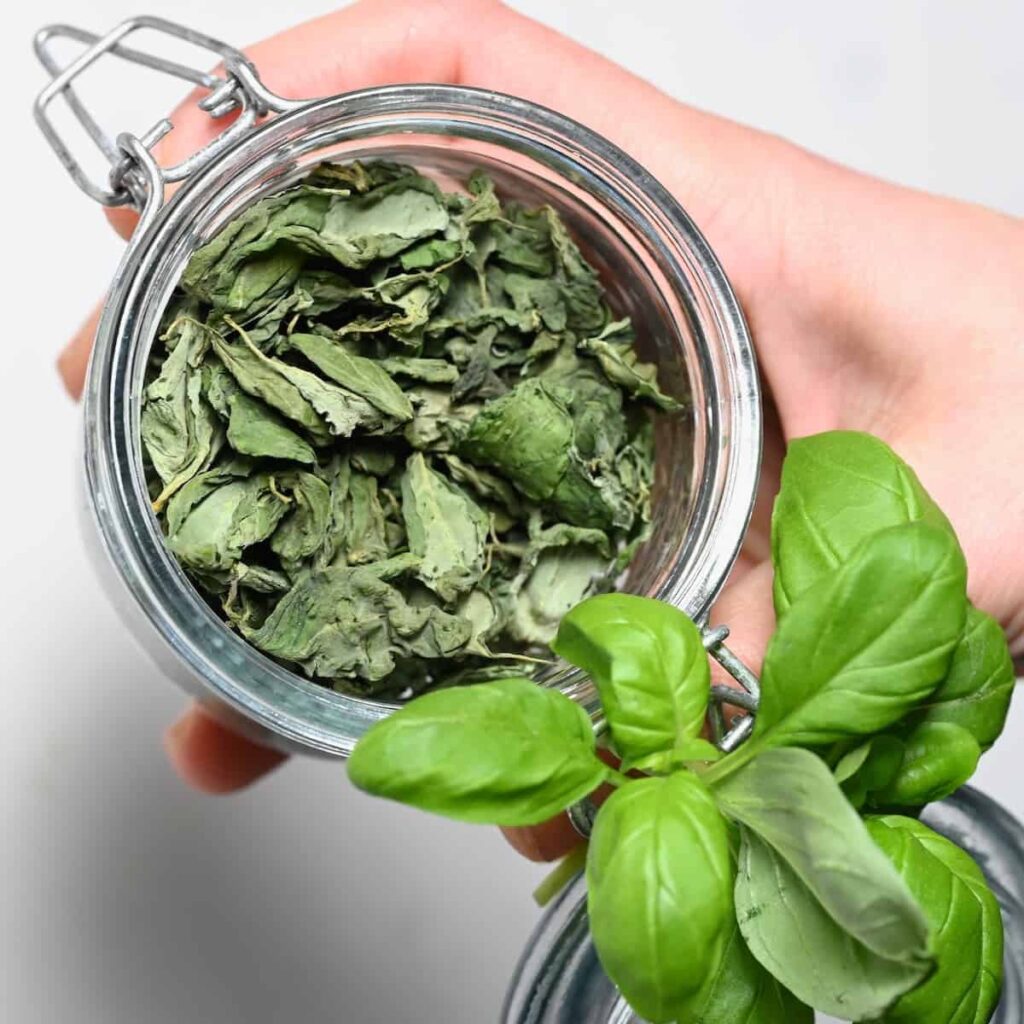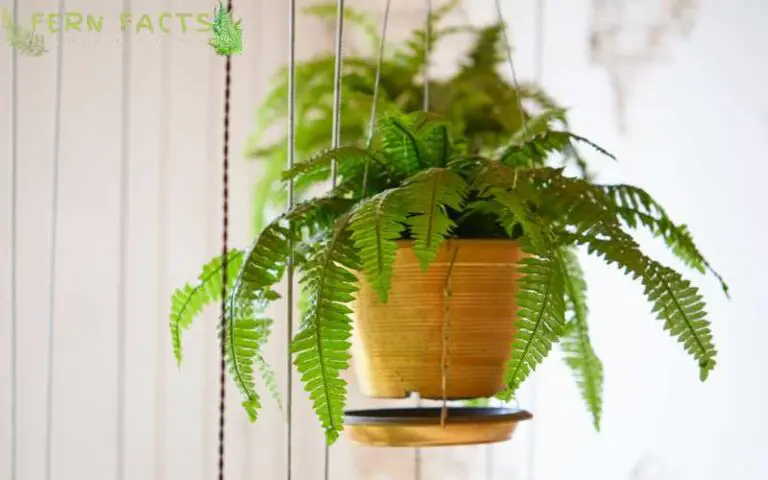8 Plants and Herbs that Keep Bugs Away
Lavender, basil, mint, rosemary, marigold, citronella, lemongrass, sage, catnip, and chrysanthemums effectively repel bugs.
These plants and herbs are natural insect deterrents.
Gardening enthusiasts often seek natural ways to keep bugs at bay. An effective strategy is to use plants and herbs that repel insects.
Lavender, basil, mint, rosemary, marigold, citronella, lemongrass, sage, catnip, and chrysanthemums are known for their bug-repellent properties.
These plants not only beautify your garden but also create a pest-free environment.
Essential oils in these plants act as natural insecticides. They are safe for humans and pets and provide a chemical-free alternative to conventional bug sprays.
Growing these plants around your home can enhance your garden’s appeal while ensuring a bug-free zone.
Plus, many of these herbs can be used in cooking, adding flavor to your dishes.
1. Lavender

When looking for plants that keep bugs away, lavender is a top choice. Its beautiful purple flowers and calming scent make it a favorite.
But lavender’s benefits go beyond its looks and smell. It is a powerful bug repellent, keeping mosquitoes, moths, and flies at bay. Let’s explore the benefits and uses of lavender as a bug repellent.
Benefits Of Lavender
Lavender is more than just a pretty plant.
It offers many benefits, especially for repelling bugs. Here are some key benefits:
- Natural Bug Repellent: Lavender’s strong scent confuses bugs and keeps them away.
- Non-toxic: Unlike chemical sprays, lavender is safe for humans and pets.
- Easy to Grow: Lavender can thrive in many climates with minimal care.
- Multi-Purpose: It repels bugs and adds beauty and fragrance to your garden.
Lavender is especially effective against mosquitoes. Its scent masks the human smell that attracts mosquitoes. This makes it hard for them to find you.
Lavender repels mosquitoes and moths. It can be used in closets to keep moths from eating your clothes.
Let’s summarize the benefits in a table:
| Benefit | Description |
|---|---|
| Natural Bug Repellent | Keeps bugs away with its strong scent |
| Non-Toxic | Safe for humans and pets |
| Easy to Grow | Thrives in many climates |
| Multi-Purpose | Beautifies and fragrances your garden |
How To Use Lavender For Bug Repellent
Using lavender to repel bugs is easy. Here are some simple ways to use it:
- Plant Lavender: Grow lavender around your home. Plant it in your garden, near windows, or doorways.
- Lavender Oil: Use lavender essential oil. Mix it with water and spray it in bug-prone areas.
- Lavender Sachets: Fill small bags with dried lavender and place them in closets, drawers, or under pillows.
- DIY Bug Spray: Make your bug spray. Mix lavender oil with witch hazel and water. Spray it on your skin to keep bugs away.
Here’s a simple recipe for DIY lavender bug spray:
Ingredients:
- 10 drops of lavender essential oil
- 2 tablespoons of witch hazel
- 2 tablespoons of water
- Small spray bottle
Instructions:
1. Mix the lavender oil, witch hazel, and water in the spray bottle.
2. Shake well before each use.
3. Spray on exposed skin to repel bugs.
Using lavender is a great way to keep bugs away naturally. It is safe, easy, and smells great. Try it in your home and garden for a bug-free summer!

2. Citronella
Keeping bugs away naturally is a smart way to enjoy your outdoor space without harmful chemicals.
One of the most effective plants is Citronella. Known for its fresh, lemony scent, Citronella is a powerful bug repellent. Let’s explore how this plant can help you maintain a bug-free environment.
Properties Of Citronella
Citronella is a tall grass that emits a strong, citrus-like aroma. This scent is pleasant to humans but repels bugs. Here are some key properties of Citronella:
- Natural Oil: The oil extracted from Citronella is rich in compounds like citronellol, citronellal, and geraniol.
- Aroma: Its strong, lemony scent masks the scents that attract bugs.
- Growth: Citronella can grow up to 6 feet tall in the right conditions.
- Climate: It thrives in warm, sunny climates with well-drained soil.
Below is a table summarizing the key properties:
| Property | Description |
|---|---|
| Natural Oil | Rich in citronellol, citronellal, geraniol |
| Aroma | Strong lemony scent |
| Growth | Up to 6 feet tall |
| Climate | Warm, sunny, well-drained soil |
Using Citronella To Repel Bugs
Citronella is versatile in bug-repellent applications. Here are some effective ways to use Citronella:
- Planting: Plant Citronella around your garden or patio. Its natural scent will keep bugs at bay. Ensure it gets plenty of sunlight and water.
- Oil: Use Citronella oil in diffusers or mix it with water in a spray bottle. Apply it on your skin or around your home.
- Candles: Citronella candles are popular for outdoor events. Light them to create a bug-free zone.
- Soaps and Lotions: Incorporate Citronella oil into homemade soaps and lotions for personal use.
Citronella is an eco-friendly and effective way to keep bugs away. Whether you plant it in your garden or use its oil, you can enjoy a bug-free environment naturally.
3. Marigold

Are you tired of pesky bugs invading your garden? One standout plant is the Marigold.
This vibrant flower not only adds beauty to your garden but also keeps unwanted bugs at bay.
Repellent Qualities Of Marigold
Marigolds are famous for their bright, cheerful blooms and their ability to repel insects. The secret lies in their strong scent, which many bugs find offensive.
Planting marigolds around your garden creates a natural barrier that keeps pests away.
Marigolds are particularly effective against:
- Mosquitoes
- Aphids
- Whiteflies
- Nematodes
Their repellent properties come from compounds called pyrethrins. These substances are used in many commercial insecticides. By planting marigolds, you harness these natural compounds to protect your garden.
Besides repelling bugs, marigolds also attract beneficial insects. These include ladybugs and hoverflies, which prey on harmful pests. This creates a balanced ecosystem in your garden.
Marigolds are effective and easy to grow. They thrive with minimal care, whether planted in flower beds, vegetable gardens, or pots.
Planting Marigolds For Bug Control
Planting marigolds is simple and can be done by anyone, even beginners.
Follow these steps to make the most of their bug-repelling qualities:
- Choose the Right Variety: French marigolds are the most effective for pest control.
- Location: Plant marigolds in sunny spots. They need at least six hours of sunlight daily.
- Sowing Seeds: Start with seeds or seedlings. Sow seeds directly in the soil, spacing them about 6-9 inches apart.
- Soil: Use well-drained soil. Marigolds are not picky but prefer slightly acidic to neutral pH.
- Watering: Water the plants regularly, but avoid overwatering. Marigolds are drought-tolerant once established.
- Companion Planting: Plant marigolds alongside vegetables like tomatoes, beans, and potatoes to protect them from pests.
Here’s a quick reference table for planting marigolds:
| Aspect | Details |
|---|---|
| Best Variety | French Marigold |
| Sunlight | At least 6 hours daily |
| Soil | Well-drained, slightly acidic to neutral pH |
| Spacing | 6-9 inches apart |
| Watering | Regular, avoid overwatering |
By following these steps, you can enjoy marigolds’ dual benefits: They beautify your garden and keep it free from pesky bugs.
4. Peppermint

Keeping bugs away naturally is a great way to ensure a pest-free environment without harmful chemicals.
Among the many plants and herbs, peppermint stands out for its effectiveness. Let’s dive into how peppermint can help keep bugs at bay and the best ways to use it.
Peppermint As A Natural Bug Deterrent
Peppermint is well-known for its strong, refreshing scent. This aroma is delightful to humans but repulsive to many bugs. Here’s why peppermint is an effective bug deterrent:
- Strong scent: The menthol in peppermint is too strong for bugs, making it an excellent repellent.
- Non-toxic: Unlike chemical repellents, peppermint is safe for humans and pets.
- Versatile: Peppermint can repel various insects, including ants, mosquitoes, and spiders.
Bugs rely on their sense of smell to find food and mates.
Peppermint disrupts this process, making it hard for them to survive.
Studies have shown that peppermint oil can kill certain insect larvae and eggs.
| Insect | Effect of Peppermint |
|---|---|
| Ants | Repels and disrupts trails |
| Mosquitoes | Repels adults and kills larvae |
| Spiders | Repels and keeps them away |
Using peppermint as a natural bug deterrent ensures a healthier, eco-friendly approach to pest control.
Ways To Apply Peppermint For Bug Repellency
There are several effective ways to use peppermint to keep bugs away. Here are some popular methods:
- Peppermint Oil Spray: Mix 10-15 drops of essential oil with water in a spray bottle. Spray around windows, doors, and other entry points.
- Peppermint Plants: Plant peppermint around your home, especially near entrances. The live plants will continuously emit the repelling scent.
- Cotton Balls: Soak cotton balls in peppermint oil and place them in areas where bugs are common, like cabinets and corners.
Using these methods ensures that bugs stay away from your home without the need for harmful chemicals. Make sure to reapply sprays and replace cotton balls regularly to maintain effectiveness.
For a more intense approach, you can combine peppermint with other essential oils like lavender or eucalyptus. This combination can enhance the repellent effect, providing a stronger barrier against bugs.
Try these peppermint applications for a natural and safe way to keep your space bug-free.
5. Basil

Basil stands out among these natural wonders.
This common kitchen herb enhances meals and repels pesky insects. Let’s explore the world of Basil and learn how it can help you maintain a bug-free environment.
Bug-repelling Characteristics Of Basil
Basil is more than just a delicious herb. Its powerful bug-repelling properties make it a must-have in your garden or home.
The secret lies in its natural oils, which emit a strong scent that bugs dislike.
Here are some of the key characteristics that make Basil an effective bug-repellent:
- Essential Oils: Basil contains essential oils such as eugenol, citronellol, and linalool. These oils are known to repel insects.
- Aroma: The strong aroma of Basil confuses bugs, making it hard for them to locate their targets.
- Versatility: Basil is effective against a wide range of insects, including mosquitoes, flies, and moths.
- Safe for Humans: Unlike chemical repellents, Basil is safe for humans and pets.
Basil’s natural oils and strong aroma make it a powerful, versatile, and safe option for repelling bugs. It’s an excellent choice for those who prefer natural solutions over chemical-based products.
How To Use Basil To Keep Bugs Away
Using Basil to keep bugs away is simple and effective. Here are some practical ways to utilize Basil in your bug-repelling strategy:
- Planting Basil: Plant Basil in your garden or pots around your home. The strong scent will deter bugs from entering your space.
- Making a Basil Spray: Blend basil leaves with water to create a natural bug spray. Strain the mixture and pour it into a spray bottle. Use it around your home to repel insects.
- Basil Infused Oil: Infuse Basil leaves in oil and apply it to your skin. This natural repellent is effective against mosquitoes and other insects.
- Indoor Use: Place potted Basil plants near windows and doors. This will create a barrier that bugs find hard to cross.
- Cooking with Basil: Add Basil to your cooking. The aroma will fill your home, naturally repelling insects.
Incorporating Basil into your bug-repelling plan is easy and offers a dual benefit. Not only do you get a natural repellent, but you also have fresh herbs for cooking. It’s a win-win situation!

6. Chrysanthemum
Are you tired of pesky bugs ruining your outdoor fun? Many plants and herbs help keep these annoying insects at bay. One standout is the Chrysanthemum.
This vibrant flower beautifies gardens and acts as a natural bug repellent. Learn more about how Chrysanthemums can help you enjoy a bug-free environment.
Chrysanthemum’s Insect-repelling Properties
Chrysanthemums are well-known for their stunning blooms and powerful insect-repelling properties. They contain a natural compound called pyrethrum.
This compound is a potent insecticide used in many commercial bug sprays.
Pyrethrum targets the nervous systems of insects, effectively paralyzing and killing them. This makes Chrysanthemums an excellent choice for keeping various pests away, including:
- Aphids
- Ants
- Japanese Beetles
- Ticks
- Fleas
- Roaches
Here’s a quick overview of the benefits of Chrysanthemum’s insect-repelling properties:
| Benefit | Description |
|---|---|
| Natural Insecticide | Contains pyrethrum, which paralyzes and kills insects. |
| Wide Range | It is non-toxic to humans and pets when used appropriately. |
| Safe for Humans | Non-toxic to humans and pets when used appropriately. |
Pyrethrum is also environmentally friendly, breaking down quickly in sunlight and leaving no harmful residues. This makes Chrysanthemums a sustainable option for bug control.
Using Chrysanthemums For Bug Prevention
Incorporating Chrysanthemums into your garden or home can help reduce insect populations. Here are some practical ways to use these flowers for bug prevention:
- Plant Chrysanthemums around your garden borders. This creates a natural barrier that deters insects from entering your space.
- Place potted Chrysanthemums near entry points. Put them near doors, windows, and patios to prevent bugs from coming inside.
- Use dried Chrysanthemum petals. Sprinkle dried petals in areas where insects are a problem, like cupboards or drawers.
- Create a Chrysanthemum spray. Boil the flowers in water, strain the mixture, and pour it into a spray bottle for a natural insect repellent.
Follow these tips to make the most of Chrysanthemums’ bug-repelling properties:
- Water regularly but avoid overwatering to prevent root rot.
- Place in sunny spots to ensure healthy growth and maximum pyrethrum production.
- Deadhead spent blooms to encourage continuous flowering and more insect-repelling action.
By using Chrysanthemums strategically, you can create a beautiful and bug-free environment. These flowers are not just pretty; they are practical too!
7. Lemongrass
Bugs can be a nuisance, especially during the warm months. Fortunately, nature offers a solution. Many plants and herbs help keep bugs away.
One of these is lemongrass. Let’s explore how lemongrass can be your natural bug repellent.
Lemongrass As An Effective Bug Repellent
Lemongrass is a powerful bug-repellent. It contains citronella oil, which bugs dislike. This oil is often used in candles and sprays to keep insects away.
Besides its pleasant citrus scent, lemongrass is easy to grow and maintain.
The strong scent of lemongrass masks other smells that attract bugs. Here are some key points:
- Citronella oil is effective against mosquitoes.
- The plant’s scent repels flies and ants.
- It is non-toxic and safe for pets and children.
Scientific studies show that lemongrass is effective in repelling insects. It disrupts the bugs’ ability to locate their targets by scent, making it a valuable plant for your garden or home.
To sum up, lemongrass is not just a culinary herb. It is also a natural and effective way to keep bugs at bay.
Application Of Lemongrass For Bug Control
Using lemongrass for bug control is simple. You can plant it in your garden or use its essential oil. Here are some methods:
- Planting Lemongrass:
- Choose a sunny spot in your garden.
- Ensure the soil is well-drained.
- Water the plant regularly.
- Using Lemongrass Oil:
- Mix lemongrass oil with water in a spray bottle.
- Spray it around your home and garden.
- Reapply every few days for best results.
- Lemongrass Candles:
- Light lemongrass candles during outdoor activities.
- Place them on tables and near seating areas.
Here is a simple recipe for a homemade bug spray:
| Ingredients | Amount |
|---|---|
| Water | 1 cup |
| Lemongrass oil | 10 drops |
| Witch hazel | 1/4 cup |
Mix these ingredients in a spray bottle and shake well before each use. This spray is safe and effective against bugs.
Incorporating lemongrass into your bug control routine is easy. It provides a natural alternative to chemical repellents and adds beauty and fragrance to your garden.
8. Rosemary
Are bugs ruining your outdoor activities?
Fear not! There are natural ways to keep them at bay. One such effective method is using plants and herbs.
Rosemary stands out among these. This aromatic herb enhances your dishes and keeps pesky bugs away.
Rosemary’s Bug-repelling Qualities
Rosemary is more than just a cooking ingredient. Its strong scent is a natural bug repellent. Many insects find its aroma overwhelming and steer clear. Here are some key qualities:
- Essential oils: Rosemary contains cineole and camphor, which are natural insecticides.
- Strong aroma: The scent masks other smells that attract bugs.
- Versatile: It deters various insects like mosquitoes, flies, and moths.
These qualities make rosemary an excellent addition to your garden.
Research shows that rosemary essential oil can reduce mosquito landings by up to 95%, making it a powerful tool in your bug-repelling arsenal.
Besides repelling bugs, rosemary has other benefits. It’s drought-resistant and easy to grow. It also attracts pollinators like bees, which are great for your garden. So, rosemary keeps bugs away and helps your plants thrive.
Methods To Use Rosemary For Bug Deterrence
There are several ways to use rosemary to keep bugs away. Here are some effective methods:
- Planting: Place rosemary plants around your garden or patio. This creates a natural barrier against bugs.
- Essential Oil Spray: Mix a few drops of rosemary essential oil with water. Spray this mixture around your home and outdoor areas.
- DIY Sachets: Fill small cloth bags with dried rosemary. Place these sachets in drawers, closets, and other areas where bugs are problematic.
- Cooking: Burn rosemary sprigs on your barbecue. The smoke will repel insects while adding flavor to your food.
For a quick reference, here’s a table summarizing the methods:
| Method | Description |
|---|---|
| Planting | Place plants around your garden or patio to create a natural bug barrier. |
| Essential Oil Spray | Mix rosemary oil with water and spray around home and outdoor areas. |
| DIY Sachets | Burn rosemary sprigs on the barbecue to repel insects and add flavour. |
| Cooking | Burn rosemary sprigs on the barbecue to repel insects and add flavor. |
Using these methods, you can enjoy a bug-free environment. Rosemary is a simple, natural solution to keep your home and garden pest-free.
Frequently Asked Questions
What Herb Will Keep Bugs Away?
Basil, lavender, and mint are effective herbs to keep bugs away. They repel mosquitoes, flies, and ants naturally.
What Is The Best Plant To Keep Bugs Away?
Basil is the best plant for keeping bugs away. Its strong scent effectively repels mosquitoes and flies. Plant it in your garden, or keep potted basil indoors.
What Smell Do Bugs Hate The Most?
Bugs hate the smell of peppermint, lavender, eucalyptus, and citronella. These scents effectively repel many insects.
What Bugs Hate Rosemary?
Mosquitoes, flies, and moths hate rosemary. This fragrant herb acts as a natural insect repellent. Use rosemary to keep these bugs away.
Conclusion
Keeping bugs at bay can be natural and simple with these 8 plants and herbs. Incorporating them into your garden or home offers a chemical-free solution.
Enjoy a pest-free environment while also adding beauty and fragrance. Choose the right plants and experience the benefits of a bug-free space.







